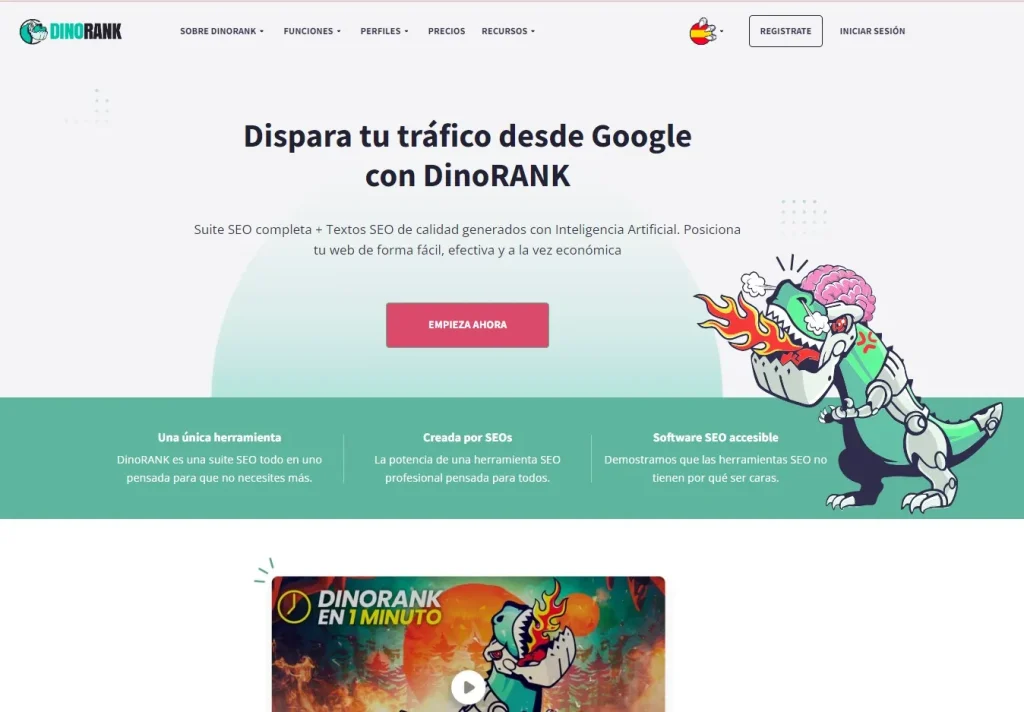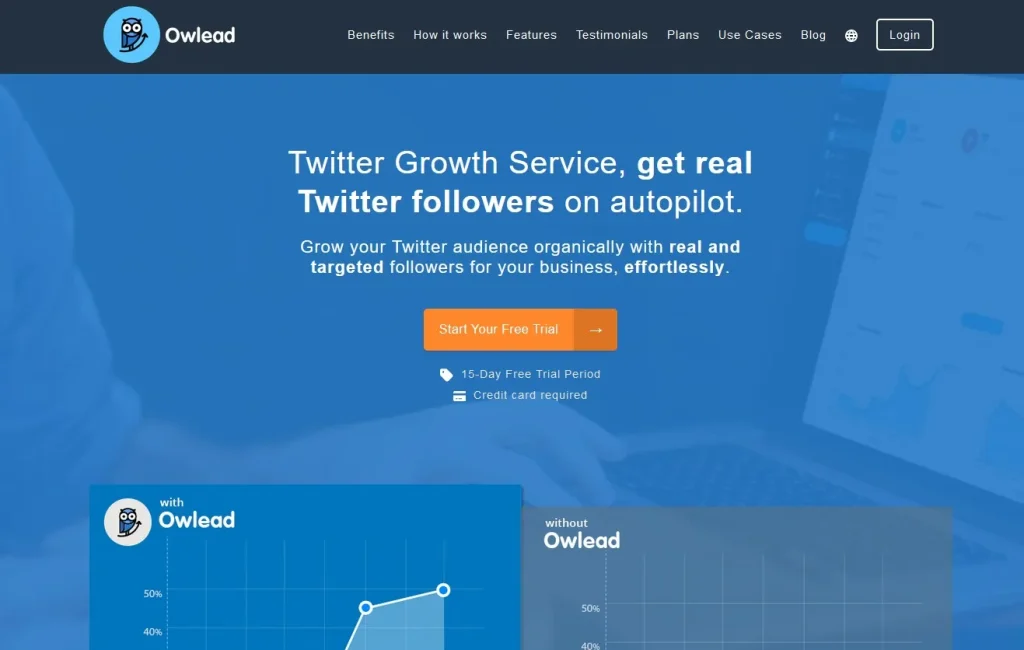Throughout my journey as an SEO consultant and Head of Growth Marketing, I’ve enhanced the web presence of countless projects spanning various domains.
From niche local startups to mid-sized businesses, international ventures, SaaS platforms, and more, I’ve seen it all.
Without a doubt, the adaptability of SEO is one of its shining strengths – and it’s also what I absolutely love about my job.
But tailoring SEO to different business types, markets, and services isn’t a one-size-fits-all ordeal.
It’s no walk in the park to grasp the essence of a project, craft a solid strategy, and then execute it over the mid to long term to achieve client goals.
This becomes even trickier with startups, where time and budget often push against the long-haul nature of web positioning.
In this piece, I’ll delve into my experiences with startup SEO, how to steer the strategy ship, and share tips to save you from potential pitfalls.
Let’s dive in! 😉

SEO for New Ventures: Key Aspects of Startup SEO
Before we jump in, let’s clarify what I mean by startups.
A startup is a budding venture, typically linked to tech and innovation, aiming for rapid market growth.
They often secure investment capital based on the unique business idea they intend to realize.
While many startups bite the dust and fail, some hit the jackpot like DinoRANK, transforming into established enterprises with hefty yearly turnovers and also shaping the next-gen of SEO experts.

Other successful Spanish startups include Cabify, Glovo, Lookiero, onTruck, to name a few.
1. Web and Brand Overview (if already established)
I’ve encountered startups that just had a homepage, essentially a one-pager.
There was so much left to define – their brand identity, product direction, and its potential web traction.
In some cases, while their websites had some work done, they lacked an SEO focus – which can sometimes be worse than starting from scratch.
Hence, the first step is to assess the website and the brand, understanding project viability and how we as SEOs can contribute.
Remember, for some startups, a mobile app might be their primary acquisition channel, sidelining the web initially.
Here, we’d discuss ASO (App Store Optimization) rather than SEO, but the evaluation remains paramount.
2. Keywords and Search Volume
After understanding the website and brand, it’s time for a preliminary keyword analysis and gauging their search volumes.
Why?
For a straightforward reason many startups overlook.
If the product, idea, or service isn’t being searched for online, web positioning won’t rake in substantial revenue.

This realization can be a tough pill to swallow for ventures with an innovative idea that no one’s searching for, thus needing to build awareness from scratch.
And SEO might not be the best tool for that.
Also, assessing search volumes is vital – a product might either have negligible interest or an overwhelming amount that gets everyone excited.
3. Market Competition
You could have the world’s best business idea, but if you’re competing against ten top-tier players, you’ll need to play your A-game till the very end.
Many startups think a few months of SEO will skyrocket them to the top of Google’s results, but that rarely, if ever, happens.
Generally, 99.9% of markets face competition. Even for startups with novel ideas, there could be rivals ranking in the SERPs, even if their offerings slightly differ.
4. User Acquisition: Is it the best revenue channel?
This ties back to an earlier point: Is SEO the optimal way to generate traffic and revenue?
It depends on a myriad of factors. But often, in the short run, ads, conventional advertising, or social media might be the primary and most effective channels to pull in users.
SEO is a marathon, not a sprint. Thus, startups shouldn’t bet all their chips solely on web positioning.
However, any company eyeing longevity in the market should undoubtedly embrace SEO.
5. ROI Considerations
It’s crucial for startup founders to understand that when hiring an SEO expert, the return on investment (ROI) might not show immediately. It could be 6 months, a year, or even longer before you really see those returns.
There are a lot of factors in play, such as the cost of the service, the time it takes for Google to rank a new brand, and potential costs associated with backlinks. All these should be kept front and center in mind.

Similarly, it’s not just about setting aside a budget for ads. The cost of running the ads has to be factored in, and you want to ensure that your ROI remains positive.
6. Managing Expectations
When it comes to SEO for startups, success is as much about managing your relationship with clients as it is about your skills and abilities as an SEO expert or marketer.
Before diving into a project, it’s vital to set clear expectations. This means not making promises before you’ve fully assessed the market and the client’s website.
You have to be cautious. After doing the benchmarking and keyword research, it’s time to discuss with the client the realistic chances of ranking their startup.
7. Managing Urgency
SEO and urgency? Not a great mix.
They don’t go well together. SEO isn’t a superhero cape you can don to instantly achieve results.

Setting realistic goals and progressing steadily is the key. Even with Google Ads, you can’t expect instant results.
Every aspect of SEO has its learning curve and improvement phases.
8. Understanding the Product and Brand
Last but not least, if a startup checks all the boxes, you should delve deep and understand their product and brand.
This understanding is a game-changer when crafting a winning SEO strategy.
SEO for Small Businesses: How To?
Now that you’re aware of what to consider when handling a startup’s SEO, it’s time to devise a strategy.
1. Conducting Local/Global Keyword Research
After getting the client’s nod, the first step is to conduct a keyword research tailored to local, global, or ‘glocal’ scales depending on the startup’s target audience.
It’s essential to understand their primary target locations/countries/regions to shape the initial keyword research scope.
Depending on their target market, there can be a plethora of keywords to target or just a handful in some cases.
2. Competitor Analysis (Omnichannel)
When analyzing websites, you obviously need to assess the authority and features of the competition.
However, it’s also crucial to know if there’s competition on other channels like apps, social media accounts, or even local businesses and traditional media.
3. Define a Mid-to-Long-Term SEO Strategy
The SEO strategy you outline should be focused on mid to long-term results.
Yet, achieving tangible outcomes around the 6-month mark is vital to solidify trust with top brass.

Here’s Getvico, one of the startups we worked with in the past year.
The progress was impressive, not only in terms of web ranking but also in generated business.
They are a startup offering medium to short-term rentals for students and young professionals in Colombia.

For startups, it’s essential to invest wisely and achieve results. Even if you stress that SEO results take time, clients will still want to see short-term progress to feel their money is well spent.
That’s why your mid-term strategy also needs to show some traction in the search rankings.
4. Develop an Action Plan Prioritizing Quick Wins and Website Fundamentals
While having a strategy is excellent, you need a clear and actionable plan. This includes building the website’s architecture, creating initial landing pages, generic and policy URLs, and impactful blog content, all to be established in the early months.
Quick wins like improving titles, setting up redirects, or enhancing aspects of On-Page SEO are pivotal in the initial phases.
5. Set Up an Editorial Calendar Focusing on Attainable Keywords
For domains with minimal authority, like many startup domains, blog content can work wonders.
This is because you can target long-tail or even longer-tail keywords with minimal search volume but low competition.

Owlead is another startup we’ve collaborated with this past year. It’s a web app that helps grow your Twitter following effortlessly.
I’ve been a user long before we started their SEO.
This approach will gradually drive traffic, incrementally boosting domain authority and brand recognition.
Starting with high-competition keywords will hardly get you any organic clicks, making long-tail keywords the ideal starting point.
6. Track Rankings Monthly and Consistently Show Progress
It’s vital to not only monitor the monthly rankings of primary keywords but also to share this progress with the startup.
Having or granting access to Google Search Console and Google Analytics 4 for the domain is also essential.
This way, you can monitor and track conversions, users, and all relevant metrics and KPIs.
7. Capitalizing on Every New Business Opportunity Online
As the months roll on, new keyword opportunities, business ventures, ideas, and partnerships will emerge.
Some blog posts might rake in solid traffic, and with minimal effort, you can funnel them to landing pages that drive conversions and put money in the client’s pocket.
There might also be content ideas that initially slipped under the radar, or valuable backlink opportunities presenting themselves.
Using tools like Search Console, DinoRANK, and other SEO essentials is crucial in uncovering these golden opportunities for your website.
Final Thoughts
Doing SEO for startups is something I truly relish, as each budding enterprise presents fresh and engaging challenges that hone my skills both as a professional and an SEO enthusiast.
It’s no walk in the park. With startups, you often grapple with uncertainty, limited initial funds, and the pressing need to generate revenue to fuel and drive the whole operation.
SEO stands as one of the most cost-effective traffic and business channels. However, it’s also among the slowest when it comes to yielding tangible results.
It’s for these reasons that I put together this piece, and I genuinely hope you found it immensely helpful.
Have you ever tackled SEO for a startup? What other insights would you share?

